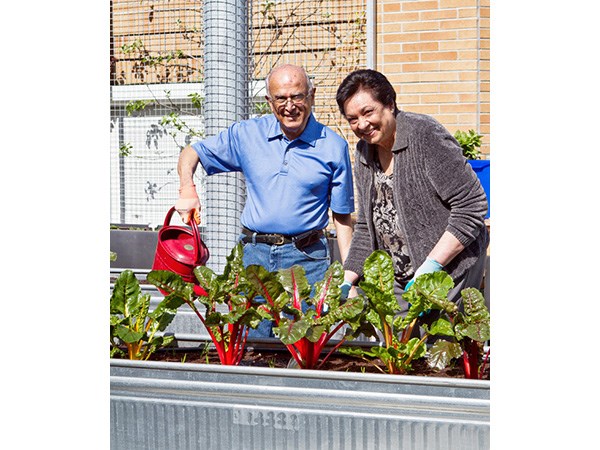Richmond is aiming to be an “age friendly” destination and expects to have updated plans to achieve this by the end of the year.
The time frame of the original Old Age Service Plan (OASP) expired in 2012, says Kim Decker, spokesperson for the City of Richmond. So it was time to revisit the strategy.
The initiative was then further prompted by a $20,000 grant awarded to the city this year by the BC Ministry of Health, in partnership with the Union of BC Municipalities, in order to prepare an Age-Friendly Assessment and Action Plan.
With seniors now consisting of the fastest growing age group across the country, B.C. no less, Decker says council sought to assess the adequacy of its services for that demographic.
In Richmond’s case, based on 2011 Population Age Distribution data, 17 per cent of the city’s population was aged 65 and over. That number has grown and is projected to balloon to 28 per cent by 2036.
Decker says the action plan will identify important initiatives, programs and infrastructure already in place in Richmond and will then specify actions and identify outcomes to promote and enhance Richmond’s age-friendliness.
The city has drawn from the guidelines set out by the World Health Organization (WHO) in 2006 as part of the organization’s Age-Friendly Cities initiative.
Two cornerstone documents developed by the WHO, Global Age-friendly Cities: A Guide and Checklist of Essential Features of Age-friendly Cities, are being used by the city as the general roadmap (and are easily found online at: http://www.phac-aspc.gc.ca/seniors-aines/afc-caa-eng.php) for the local initiative.
An age-friendly community would promote pleasant, safe and accessible outdoor areas and public buildings for seniors to access.
In addition, there would be access to affordable and safe housing, specifically designed for seniors. Roads and walkways would be kept in good shape and accessible. Neighbourhoods would be safe, relevant information easy to find and programs available to seniors so they can remain socially active.
Richmond is by no means bereft of infrastructure dedicated to its aging population, adds Decker.
“Richmond has a vibrant and engaged older adult population. It also has many plans, policies, partnerships, services and structures in place to support older adults.”
The OASP, Minoru Place Activity Centre and the Seniors Advisory Committee — which were not available for comment — are just a few examples that Decker noted.
But the situation could be improved.
Eighty-year-old Richmond resident, Dorothy McKeil, says public transportation and access to certain amenities in her area is a prime concern.
“I live in Burkeville and I find it hard to get to St. Paul’s Hospital,” says McKeil.
The travel time is about an hour each way and if she misses a bus, the wait time is about 30 minutes until the next one arrives.
In addition, McKeil says there are no nearby grocery stores in the Burkeville area.
“I’m certainly thinking of moving,” she says.
However, McKeil says she’s more than pleased with some of the senior activities she’s able to participate in. McKeil is part of a seniors tap and ballet class coordinated by the Richmond Arts Centre.
“It gives me confidence that I can remain active and healthy,” says McKeil, “and I enjoy it very much . . . otherwise I’d be a couch potato.”
The city is currently conducting focus groups with Richmond’s senior citizens and caregivers to openly discuss improvements and areas of concern such as necessary community support and health services, affordable housing, transportation, civic participation and more. Readers can view WHO documents mentioned above for a more complete list of the key areas of assessment. If you would like to participate in a focus group, you can call 604-276-4300 or visit any Richmond Community Centre in person.
In addition, web-surfing seniors can log online to complete a short survey at http://letstalkrichmond.ca/seniors. The survey period is set to end by Sept. 18.



